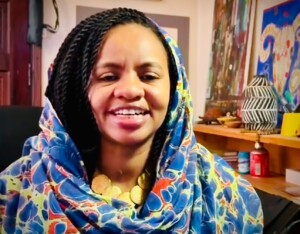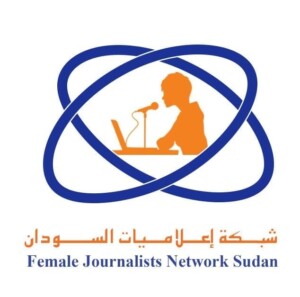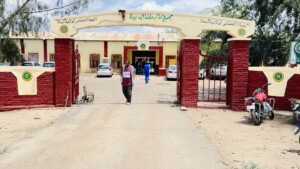Interview with Nuba Kandaka Safaa Tutu: A Story of Resilience and Struggle
For Radio Dabanga’s Inspirational Women series we interviewed Safaa Jaber Tutu, activist, revolutionary, and once Miss Nuba Mountains. Originally from the Nuba Mountains in Sudan’s South Kordofan, she has witnessed conflict, displacement, and injustice. She talked about the revolution, the war in the Nuba Mountains, the peace process, her social activism, and the need for radical change.
 Safaa Tutu - Activist and Miss Nuba Mountains 2016 (RD)
Safaa Tutu - Activist and Miss Nuba Mountains 2016 (RD)
For Radio Dabanga’s Inspirational Women series* we interviewed Safaa Jaber Tutu, activist, revolutionary, and once Miss Nuba Mountains. Originally from the Nuba Mountains in Sudan’s South Kordofan, she has witnessed conflict, displacement, and injustice. She talked about the revolution, the war in the Nuba Mountains, the peace process, her social activism, and the need for radical change.
Escaping the Nuba Mountains
When she returned home to Kadugli, capital of South Kordofan and its Nuba Mountains, during her first visit to the region since she and her family fled the scourge of war in 2011, the scenes of destruction passed before her eyes again.
The memories of ten years were still fresh; dead bodies were lying everywhere as they watched her during her escape. The deafening rattling of guns still echoed in her ears and she could feel the fear as if it was yesterday; her escape with her father, mother, and her nine brothers.
She explained: “My family was targeted. We were informed that armed forces were on their way to our house and that we had to escape quickly. We ran out of the house and left everything behind. The vehicles with weapons arrived as soon as we got out. We saw the dead bodies on the ground and undirected violence was everywhere. We ran to El Shair camp. One of my brothers was missing but we immediately headed from the camp to Khartoum.”
This is the story of how Safaa Tutu and her family escaped the violent conflict in the Nuba Mountains during the Al Bashir dictatorship and fled to the outskirts of Khartoum.
'We ran out of the house and left everything behind. The vehicles with weapons arrived as soon as we got out'
Nuba Mountains conflict
As the African Centre for Justice and Peace Studies (ACJPS) explained during the outbreak of renewed conflict in 2011, when Safaa’s family fled, South Kordofan “has been the site of significant violence and dislocation”.
“Like many other regions of Sudan, the state has suffered from political exclusion and marginalisation” in which “the Nuba have particularly suffered”. The Al Bashir regime targeted not only members of the Sudan People’s Liberation Movement (SPLM) and the SPLM-North, but also any members of the Nuba ethnic group.
Door-to-door searches were conducted, and many people were dragged out of their homes and subjected to arbitrary arrest, torture, disappearances, and extrajudicial killings. Brutal attacks and bombings also took place in Nuba-populated areas.

Fight to survive
In Khartoum, their struggle for survival was not over a family that had to start anew as they had to leave everything behind. Safaa remembered: “It was a difficult life. My father left for Juba and when his health deteriorated, he travelled further. My brother in Juba was helping us and we all went out to work… My brothers worked washing and varnishing cars whilst I worked in cafeterias and factories. I was studying and working at the same time… Despite the harsh conditions, I made sure that I never stopped my studies.”
Safaa completed a Bachelor’s degree in Public Health at the Ahfad University for Women in 2019.
' Despite the harsh conditions, I made sure that I never stopped my studies'
Public work and engagement
The difficult circumstances and the war that she lived through contributed to her desire to not only be responsible towards her family but also work towards a more just society.
She has predominantly focussed on public work through associations that aim to support the people of the Nuba Mountains. Starting from Khartoum, she was an active member of the Nuba Mountains Student Union, the Nuba Mountains Media Association, and a member of the KADAD organization consisting of a group of doctors,
In 2016, she won the title of Miss Nuba Mountains at the Nuba Mountains Cultural Festival in Omdurman. After the crowning, Safaa burst into tears during her speech as she thanked her family, especially her father and her mother from whom she was separated because of the ongoing war in South Kordofan.
The title also added more responsibilities to her schedule; she participated in all public events for the Nuba people of different tribes and formed initiatives to serve their communities. She contributed to the Let's Live Our Diversity Initiative for the peaceful coexistence of diverse communities and worked on peace-building activities in the Nuba region with Ahfad University and the Sustainable Dialogue for Peacebuilding Association.
Safaa also participated in the Health for All Initiative, which was launched with health awareness in the peripheral areas of Khartoum, the Literacy for Women project of the Babiker Badri Society Initiative, and the Without Creams initiative against the use of skin whiteners.

Kandaka Safaa
During the December revolution in 2018, Safaa was one of its young actors. She was an active member of the resistance committees and organised processions. She was present during the sit-in square in front of the General Command from April 6 that led to the deposal of dictator Omar Al Bashir on April 11.
From a special Nuba Mountains tent, she participated in activities and awareness sessions on the issues of the Nuba Mountains region and the suffering of its people.
Longing for home
Safaa returned from her trip to the mountains with a lot on her mind for the people of the region. "It was an exploratory trip. I plan to be close to the community. There are many problems and areas that need support, especially with regards to women’s health and education.”
'There are many problems and areas that need support, especially with regards to women’s health and education'
After returning to Khartoum from her first visit, Safaa felt more longing for her home than ever. Nostalgia seeps through her voice and facial expressions.
She explained: "I went to the mountains and the people were very welcoming. This is what I miss since leaving after the war. I met my father for the first time in years… So far, we have not gathered as a family since the war. I’ve missed them.”
“Our lands were divided. The situation is better in the liberated areas, it has more security and services and everything, but I would prefer to return to our area. However, we cannot do so unless there is real peace.”
Sudanese peace
Safaa talks about this peace. In her opinion, the current peace process is lacking. She believes it does not discuss the real causes of the crisis and completely rejects the presence of the military component in the negotiation process whilst the military was part of the former regime and participated in the war atrocities.
'There must be radical solutions to the crises of ethnic discrimination and fights over resources'
“The participation of all groups, away from the military, and according to what was stipulated in the constitutional document is what is necessary… there must be radical solutions to the crises of ethnic discrimination and fights over resources, a radical change in how Sudan is governed, the acceptation of secularism in government, and the integration of all armed groups into a unified army.”
* More from the Inspirational Women series:
Interview with Nisreen El Saim: The December Revolution's Kandaka and a global climate activist











 and then
and then